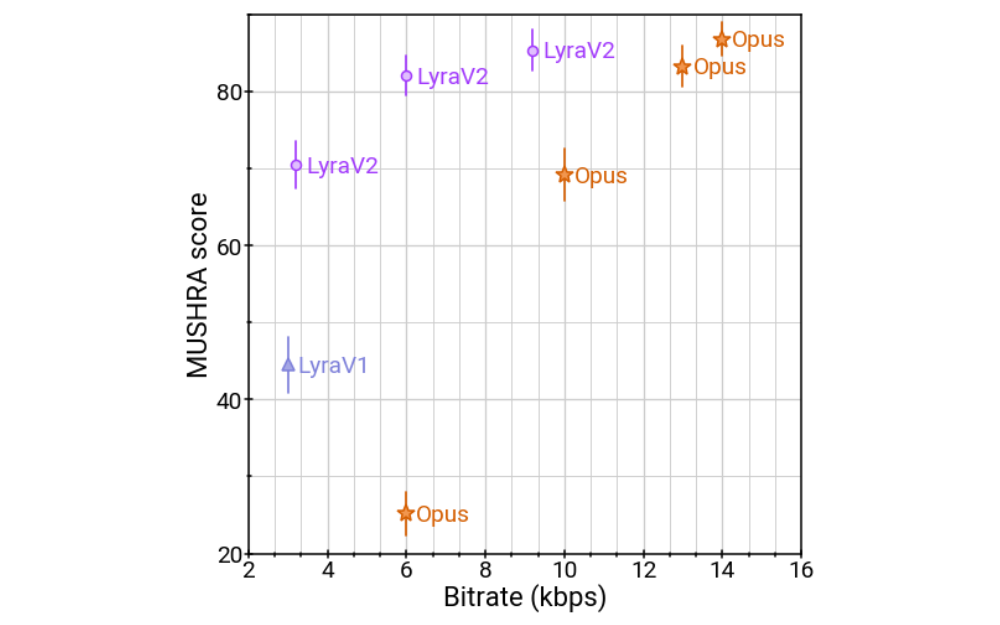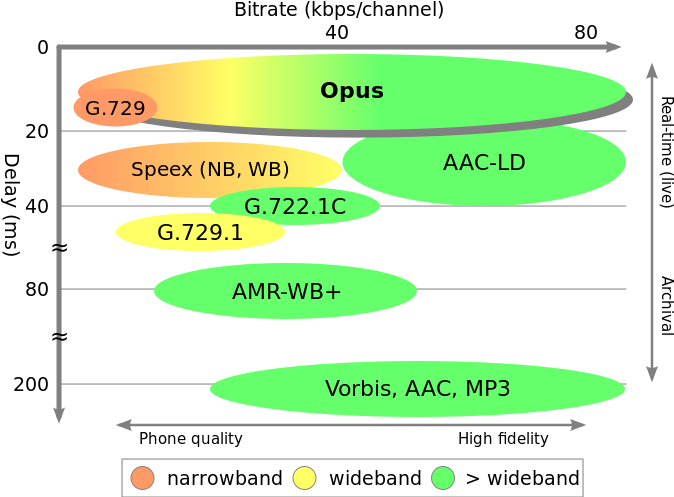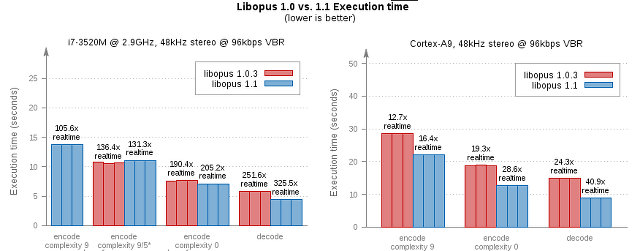Lyra V2 is an update to the open-source Lyra audio codec introduced last year by Google, with a new architecture that offers scalable bitrate capabilities, better performance, higher quality audio, and works on more platforms. Under the hood, Lyra V2 is based on an end-to-end neural audio codec called SoundStream with a “residual vector quantizer” (RVQ) sitting before and after the transmission channel, and that can change the audio bitrate at any time by selecting the number of quantizers to use. Three bitrates are supported: 3.2 kps, 6 kbps, and 9.2 kbps. Lyra V2 leverages artificial intelligence, and a TensorFlow Lite model enables it to run on Android phones, Linux, as well as Mac and Windows although support for the latter two is experimental. iOS and other embedded platforms are not supported at this time, but this may change in the future. It gets more interesting once we start to […]
Opus 1.2 Allows for High Quality Stereo Music @ 32 Kbps, Speech @ 12 Kbps
The Xiph.Org Foundation has recently announced the release of Opus 1.2 open-source audio codec with ever lower high-quality audio bitrate for music (32 Kbps) and speech (12 Kbps), faster encoding and decoding, and other tweaks to the standard and library. If you’ve never heard about Opus or need to refresh your memory, you may want to read my previous article about Opus Open Source Audio Codec. The developers improve music quality by “adjusting the bit allocation trim, improving tonality analysis with better frequency resolution, and improving quality on signals with a few very powerful tones”. You can compare Opus 1.0, 1.1 and 1.2, and MP3 at different bitrates on Xiph website. You’ll need a browser that supports Opus and MP3 in HTML5 for this to work (Chrome, Firefox, and Opera do), or you may hear another sample as if Opus support is missing the file will be played as a […]
Opus Open Source and License-free Audio Codec Decreases Latency over VoIP Codecs, (Slightly) Betters MP3 and AAC Quality
I’ve just stumbled upon Opus, a relatively new audio codec, with the release of version 1.1 implementation which improves encoding quality for VBR audio, automatically detect audio or speech to select the best encoding mode, and improved 5.1 surround quality/compression ratio. The new release also bring speed improvements for all architectures, and specifically for ARM, where decoding uses around 40% less CPU and encoding uses around 30% less CPU thanks to the use of NEON compared to an earlier version. You can go to the online demo page to find more about the latest released, and try some of the latest improvements. This all looks fun, but I wanted to know more about Opus, and especially how it compares against MP3 or AAC. It turns out Opus was not originally designed to compete against MP3/AAC which are used to store audio, but instead it was meant to be used for […]





